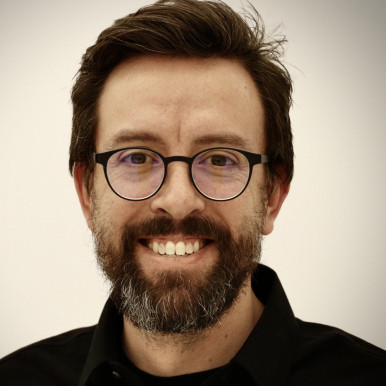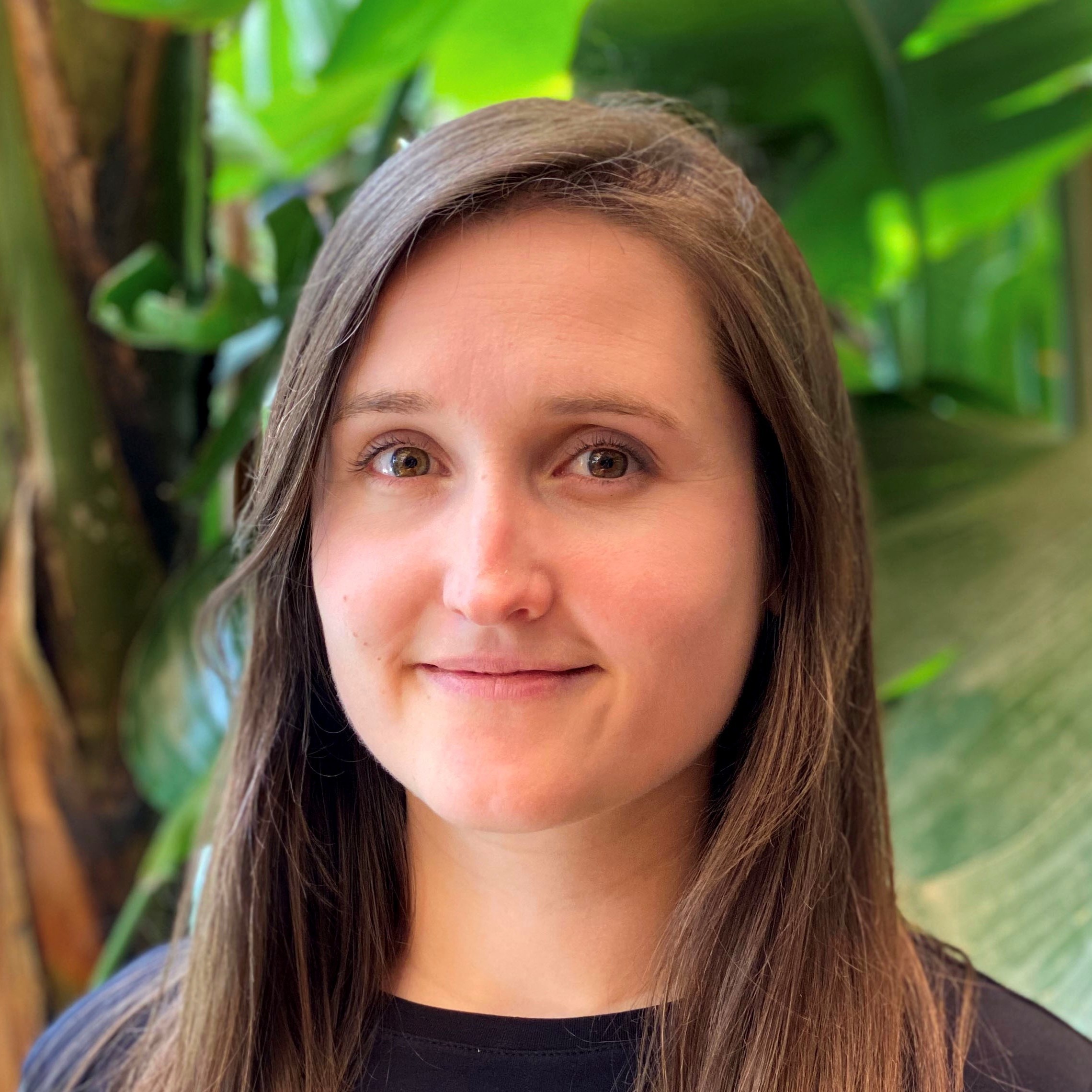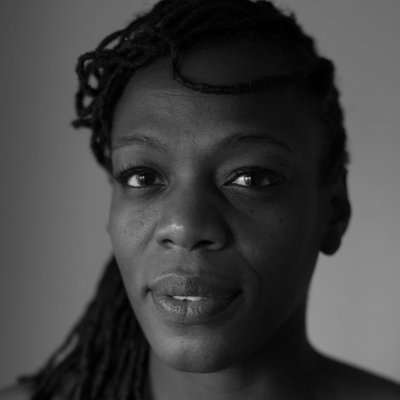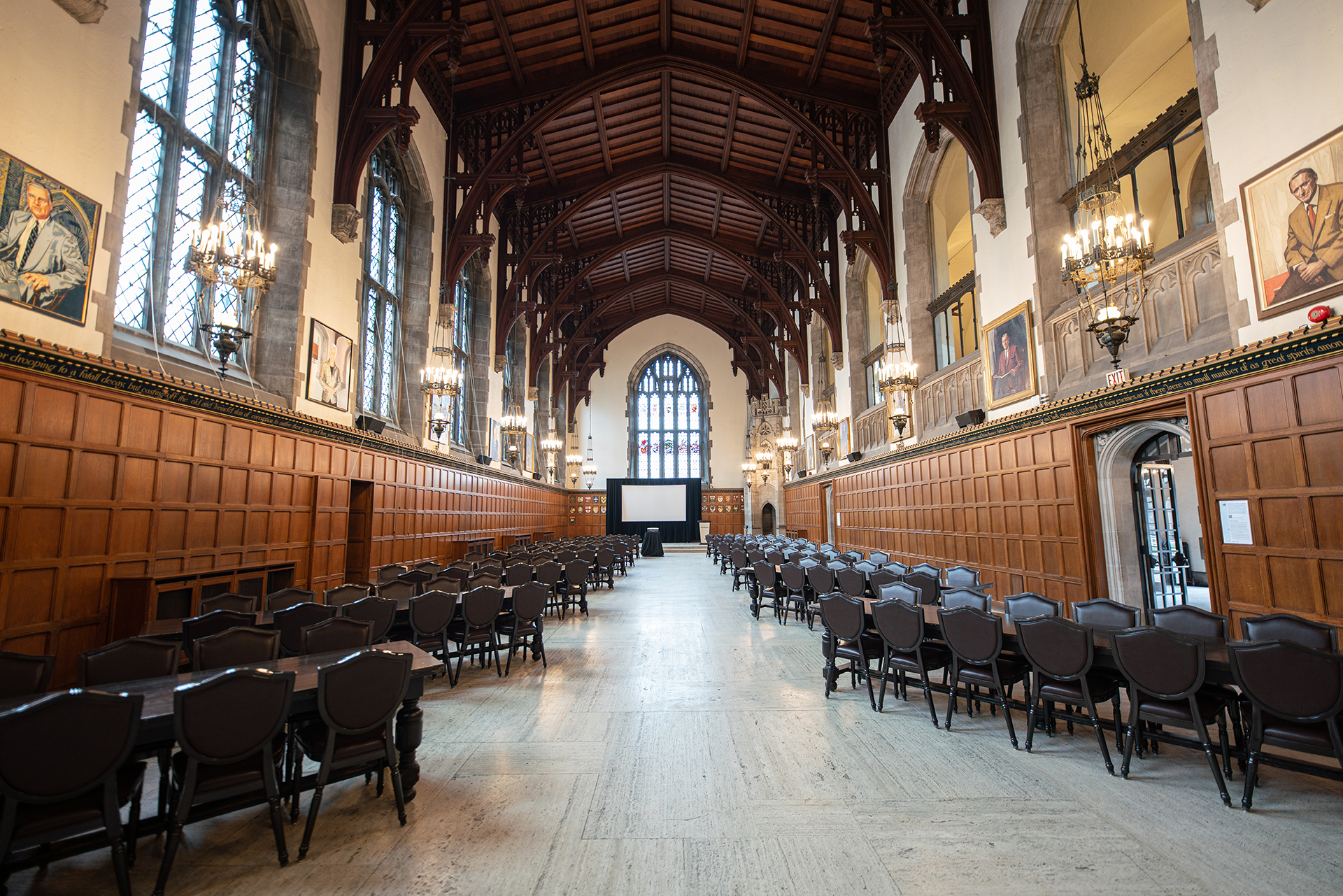
Overview
John Polanyi returns for a reprise of this critical conversation joined by Jason Millar and Isabelle Jones.
In 1987, we welcomed celebrated Nobel Laureate Dr. John Polanyi to Hart House as part of a public debate on the resolution “This House Believes Science is the Enemy of Mankind” exploring ideas about the responsibility of the scientist and in particular, about the threat posed by nuclear proliferation.
More than thirty years later, the threat of nuclear weapons remains and Dr. Polanyi continues to be a voice of conscience. Dr. Polanyi returns to Hart House for a reprise of this critical conversation and will be joined by Dr. Jason Millar, Isabelle Jones and moderator Garvia Bailey.
With the fast pace of scientific developments—developments such as AI and autonomous technology that are emerging in an already nuclearlized world—how do we approach discovery and development within a lens of commitment to peace, human rights, transparency and democracy? What are the responsible approaches to managing and understanding risk? How do communities engage meaningfully in these vital discussions?
Join us for an important conversation about an issue that impacts us all.
Speakers
-

Dr John Polanyi
1986 Nobel Prize in Chemistry, University Professor, University of Toronto
John Polanyi, educated at Manchester University, England, was a postdoctoral fellow at Princeton University and the National Research Council, Canada. He is presently a faculty member in the Department of Chemistry at the University of Toronto. His research is on the molecular motions in chemical reactions in gases and at surfaces.
He is a Fellow of the Royal Societies of Canada (FRSC), of London (FRS), and of Edinburgh (FRSE), also of the American Academy of Arts and Sciences, the U.S. National Academy of Sciences, the Pontifical Academy of Rome and the Russian Academy of Sciences. He is a member of the Queen’s Privy Council for Canada (PC), and a Companion of the Order of Canada (CC). His awards include the 1986 Nobel Prize in Chemistry, the Royal Medal of the Royal Society of London, and over thirty honorary degrees from six countries.
He has served on the Prime Minister of Canada’s Advisory Board on Science and Technology, the Premier’s Council of Ontario, as Foreign Honorary Advisor to the Institute for Molecular Sciences, Japan, and as Honorary Advisor to the Max Planck Institute for Quantum Optics, Germany.
-

Dr Jason Millar
Canada Research Chair in Ethical Engineering of Robotics and Artificial Intelligence, University of Ottawa
Jason Millar is an Assistant Professor in the School of Electrical Engineering and Computer Science at the University of Ottawa, with a cross-appointment in the Department of Philosophy. He holds the Canada Research Chair in the Ethical Engineering of Robotics and Artificial Intelligence (AI).
Jason is also a Faculty Member at the Centre for Law, Technology and Society (uOttawa), leads the AI and Robotics Research and Engagement Cluster at uOttawa's Institute for Science, Society and Policy (ISSP), and is a member of the Centre for Health Law, Policy and Ethics. He researches the ethical engineering of robotics and artificial intelligence (AI), with a focus on empowering engineers to integrate ethical thinking into their daily engineering workflow.
Jason’s work focuses primarily on the ethics, policy and engineering of automated vehicles, artificial intelligence, healthcare robotics, social and military robotics. Jason has a degree in engineering physics and worked for several years as an engineer before turning his full-time attention to issues in philosophy and applied ethics. He has authored book chapters, policy reports, and articles on the ethics and governance of robotics and AI. Jason has provided expert testimony at the United Nations CCW, and the Senate of Canada, on the ethics of highly automated military robots.
He consults internationally on policy, and ethical engineering issues in emerging autonomous vehicle technology. His work is regularly featured in the media, including articles in publications such as WIRED and The Guardian, and interviews with the BBC, CBC and NPR. He recently authored a chapter titled "Social Failure Modes in Technology and the Ethics of AI: An Engineering Perspective" in the forthcoming Oxford Handbook of Ethics of AI.
-

Isabelle Jones
Campaign Outreach Manager, International Campaign to Stop Killer Robots
Isabelle Jones is the Campaign Outreach Manager for the Campaign to Stop Killer Robots, a coalition of more than 150 NGOs and academic partners in over 60 countries working to prohibit fully autonomous weapons and retain meaningful human control over the use of force. In her role, Isabelle manages efforts to expand and strengthen the Campaign’s network, and provides funding, resources, and coordination to build momentum and energize the coalition.
Isabelle holds a Master of Science in Human Rights from the London School of Economics, where her dissertation focused on how applications of new weapons technology could result in increased civilian casualties in conflict, arguing that weaponized drone technology is deployed within a modern, bureaucratized system of labour—an institutional structure that can condition, shape and blind people to partake in morally, ethically and legally questionable acts of violence. She also holds a Bachelor of Arts in Global Development and an International Studies Certificate from Queen’s University. Isabelle first joined the Campaign to Stop Killer Robots in June 2018, as its Project Officer. Previously she worked in various roles at Aga Khan Foundation Canada; the LSE Centre for Women, Peace and Security; the LSE Centre for Human Rights. She began her career with an internship with Human Rights Watch in Toronto.
-

Garvia Bailey
Garvia Bailey loves to tell stories, but her passion is in helping others share theirs. She’s most recently told the story of jazz and the colourful musicians who inhabit that world as host of Good Morning, Toronto on JazzFM.91—Jazz and the Arts. Previously, she spent ten years with the Canadian Broadcasting Corporation as an arts journalist/producer and broadcaster.
She began her career as a producer and writer for a groundbreaking startup media company, making independent documentaries from around the world. While with the Canadian Broadcasting Corporation, she served as the host of a variety of radio programs, including Big City Small World and Canada Live; as a columnist for Metro Morning and as a contributor at cbcmusic.ca, CBC Television, as well as a producer on the documentary programs Out In the Open and Global Village and Tapestry. She has been tapped as a commentator on CBC’s flagship news program, The National.
Throughout her career in broadcasting she has turned the spotlight on emerging talent from across the GTA and has interviewed many celebrated international artists, including cultural pundit Roxane Gay, author Lawrence Hill, author Chimamanda Ngozi Adichie, director John Singleton, actor Chris Tucker and jazz icon Tony Bennett among many others. Garvia brings wit, warmth and curiosity to her interviews, qualities that set her apart as an interviewer, broadcaster and onstage host. Garvia is currently working on her own major photo/storytelling exhibit with Toronto based Black Artist in Dialogue (BAND) and with multi-media production company, Pop Sandbox, telling the stories of Toronto neighbourhoods.
